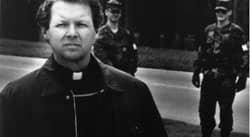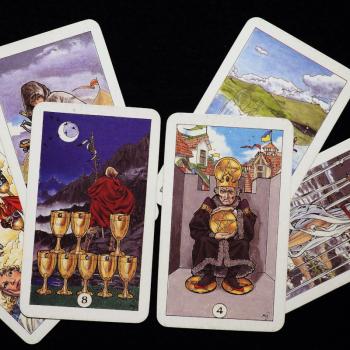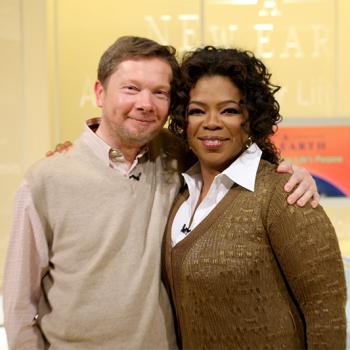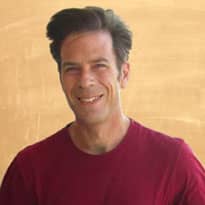 "If a man don't go his own way, he's nothing." With those words, Prew, the bugler and champion boxer played to a brilliant turn by Montgomery Clift in From Here to Eternity, defines his personal philosophy. This sounds incompatible with his army career, and in fact, it is. In short order, Prew's refusal to box for the company team earns him the enmity of his commanding officer and—aside from First Sergeant Warden—all the NCOs. By rebelling against the pack, he exposes its pettiness and corruption, but at a tremendous cost to himself. That's what makes him a hero.
"If a man don't go his own way, he's nothing." With those words, Prew, the bugler and champion boxer played to a brilliant turn by Montgomery Clift in From Here to Eternity, defines his personal philosophy. This sounds incompatible with his army career, and in fact, it is. In short order, Prew's refusal to box for the company team earns him the enmity of his commanding officer and—aside from First Sergeant Warden—all the NCOs. By rebelling against the pack, he exposes its pettiness and corruption, but at a tremendous cost to himself. That's what makes him a hero.
To the American eye, no figure looks as heroic as the insubordinate loner, the rebel with a cause. Take it back to Thoreau's day in jail, or Herman Melville's tribute to Nathaniel Hawthorne: "He says No! in thunder; but the Devil himself cannot make him say yes." Or to Huck Finn's poignant resolution ("All right, then, I'll go to hell!"). The idea that the man (or woman) might get the right idea light years ahead of the mob, or even the state, gives our culture of individualism a solid moral foundation. It's what politicians hope to evoke when they style themselves mavericks.
If this tradition were the only compass guiding people through difficult moral choices, then Fr. Roy Bourgeois would look quite heroic himself. On August 9th, 2008, Bourgeois concelebrated at an illicit ordination ceremony for a woman named Janice Sevre-Duszynska. Shortly afterward, he received a letter from the Vatican's Congregation for the Doctrine of the Faith, advising him that his support for women's ordination had earned him a latae sententiae, or automatic, excommunication, and urging him to publicly recant. Pleading his conscience, Bourgeois refused. This past July 27, Maryknoll superior-general Fr. Edward M. Dougherty issued an ultimatum: recant within 15 days, or face dismissal from the order. An adamant Bourgeois told the New York Times: "They want two words: I recant...and they can't get that out of me."
The Catholic Church isn't America. Here, insubordination tends not to look heroic. "Prophetic" is Catholic for "maverick," but the first term does not confer nearly the same license as the second. There is a tradition of dissenters finding validation long after the fact, but that tradition is very slight, and the lag very long. Galileo's rehabilitation took almost 400 years; Savonarola's cause for beatification has barely made it out of the gates. No, under normal circumstances, saying things like "Here I stand, I can do no other" is no way to earn yourself a spot on the liturgical calendar.
Since Bourgeois knows this as well as anyone, I take it for granted that his refusal to recant is exactly what he says it is—a matter of conscience, not a childish desire to attract attention. If he doesn't go his own way, then—he believes, like Prew—he's nothing.
Truth to tell, I wish Bourgeois' conscience were a bit more pliable and that, rather than shooting for prophet, he were content to remain a priest. Where confrontation and rebellion accomplish nothing, they start to look like exercises in moral dandyism. Speaking as one of the simple faithful everyone's so concerned to protect, I don't feel especially confused by Bourgeois' activism on behalf of women priests, just exhausted and harried.
Unburdened by any American fetish for rebels, Dostoevsky saw the unromantic side of the freewheeling conscience. In Crime and Punishment, Raskolnikov, serving a prison sentence for murder, dreams of a disease that drives people insane while convincing them of their brilliance. Each patient becomes a prophet: "Each thought that he alone had the truth and was wretched looking at the others, beat himself on the breast, wept, and wrung his hands." Predictably, they all go for each others throats. The vision is so horrible that it cures Raskolnikov of his own claims to superior moral insight, and reconciles him to God and his fellow man. Dostoevsky wrote the scene in 1866, but to read him, you'd imagine he's been reading the Catholic press lately.
Believe me, I am not trying to win any spurs as Defensor Fidei. The restriction of the ministerial priesthood to men is one of the Church doctrines I've found hardest to digest. And God knows I'm as easily impressed by him who stands alone as the next Monty Clift fan. But since entering the Church, I've come to expand my definition of heroism to include qualities like patience, deference and flexibility. Fr. Charles Curran, who pleaded on behalf of the conscience with unprecedented acuity, and Fr. Robert Nugent, a pioneer in ministry to gays and lesbians, both ran afoul of the CDF. Finding the experience intensely unpleasant, both took their causes to the street, speaking publicly on what they considered unfair treatment. But eventually, both found ways of continuing their priestly ministries in the spaces that remained for them.





